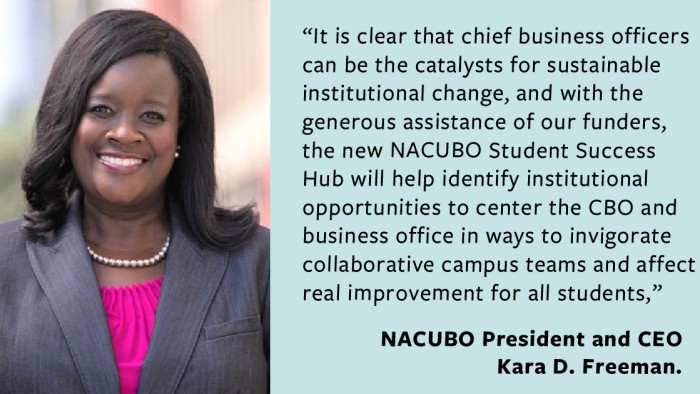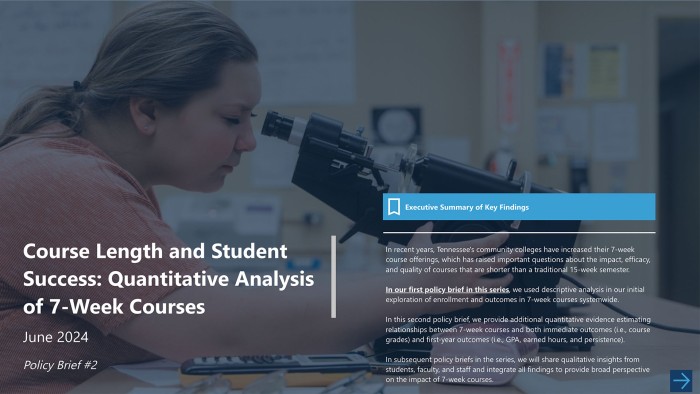
Ascendium’s Education Philanthropy Looks Forward in 2022

Last year continued to be challenging for postsecondary education and workforce training as the COVID-19 health crisis persisted. There remain many unknowns as we begin a new year, but Ascendium remains hopeful that 2022 will bring new ideas and new approaches that further our mission to ensure learners from low-income backgrounds have the opportunity to succeed.
Ascendium’s Education Philanthropy team has been undergoing intensive planning for 2022. The Grantmaking team shared some thoughts on the year ahead.
Remove Structural Barriers to Success
Senior Program Officer Sue Cui
“As recent years brought major disruption to the lives of postsecondary education learners, colleges and universities have responded with accelerated student-centered reforms and systems redesign. In 2022, we will continue to support foundational and evidence-based reforms that dramatically impact the learner experience, from enrollment through to graduation. Our work will emphasize the scaling of reforms that, while broadly accepted in the field, are not equitably present in all communities. We will endeavor to bring support through experienced and trusted partners to underserved institutions and systems.
In 2022, we will also look for opportunities to help the field go deeper — ensuring that hard-fought reforms are institutionalized in policy and accountability and utilize incentive structures. As we continue to better understand what drives postsecondary success for different subgroups of learners from low-income backgrounds, we will challenge ourselves, our grant partners and the larger postsecondary education reform community to make targeted refinement and intentionality part of a scaled approach to structural reform.”
Streamline Key Learner Transitions
Senior Program Officer Carolynn Lee and Program Officer Maryann Rainey
“Now more than ever, learners from low-income backgrounds need flexible postsecondary education options that recognize the value of the learning they’ve already acquired and quickly provide them with employer-validated training and credentials they need to meet their education and career goals. Unfortunately, postsecondary education and workforce training systems are fragmented and siloed. In response, we are setting our sights on a more seamless system of competency and credit recognition. This system will consider transfer and credit applicability that effectively meets the learners of today where they are and supports where they’re going.
Building on what we’ve learned, we’re excited to take a significant step forward in 2022. We anticipate launching a large-scale grant initiative that will support innovation, integration and equity in credit and learning mobility. We’re interested in putting aside the boundaries between transfer, credit for prior learning, guided pathways, stackable credentials and workforce preparation and training models. Without them, we can reimagine how postsecondary education systems and institutions can respond effectively to learner mobility. We envision a system in which income, race and institution of origin no longer predict postsecondary attainment.”
Expand Postsecondary Education in Prison
Director of Education Philanthropy Rebecca Villarreal
“We continue to emphasize expanding access to high-quality postsecondary education in prison programming, particularly as the field prepares for the reinstatement of Pell Grant eligibility for incarcerated learners for the 2023-24 academic year. While unquestionably challenging and difficult, pandemic-related restrictions in prisons also have sparked a unique opportunity to more deeply explore the intersections of technology and postsecondary education in prison.
In 2022, we will be looking for ways to support states, systems and postsecondary education in prison providers as they use technology as a tool for increased connectivity and access to educational opportunities. We will continue to expand Ascendium’s efforts to support strategic state and regional collaboration, which we hope will lead to integrated communication and partnerships across agencies, systems and organizations, fewer prohibitive policies and systemic barriers and ultimately more incarcerated learners served by high-quality programs.”
Support Rural Postsecondary Education and Workforce Training
Program Officer Kirstin Yeado
“In 2022, our investments will address the complex challenge of ensuring that rural learners from low-income backgrounds can seamlessly transition from postsecondary education or workforce training to a meaningful job that provides a path to upward socioeconomic mobility. We aim to invest in innovative approaches to job training and workforce development that leverage the unique assets of rural areas while also providing a clear pathway to good jobs for learners in rural communities.
We also plan to invest in projects that will center rural learners and provide insights that practitioners and other funders can apply to create or strengthen high-quality educational opportunities in rural communities. Through both a national call-for-proposals for action-oriented research and continued support of our existing partners, we intend to contribute to a deeper understanding of strategies that work to promote socioeconomic mobility in rural areas. We hope a variety of critical stakeholders, including policymakers and leaders of postsecondary, industry, community-based and workforce development organizations, will come together to create and support pathways to good job for rural learners.”


